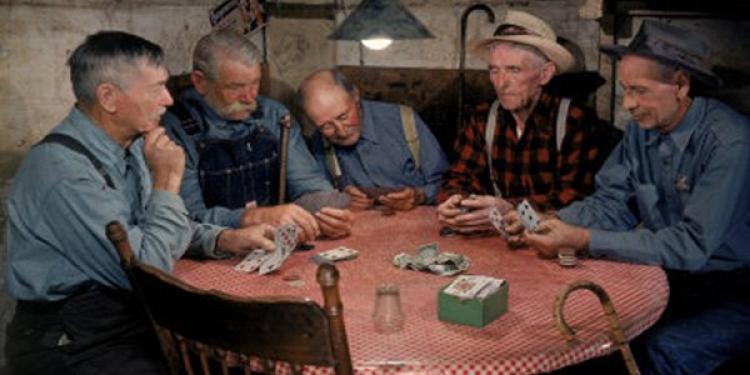Larger Number of Senior Players in USA Suffer the Outcome of Problem Gambling
Posted: June 11, 2014
Updated: October 4, 2017

Problem gambling is a growing problem in various countries and as far as the USA is concerned, experts found that the number of senior problem gamblers is quite on the rise lately.
When it comes to older players it’s pretty obvious that they usually have the necessary time and finances to support their passion for gambling.
The trouble comes when in some cases this simple pleasure transforms into a serious problem, turning those players into the typical angry gamblers at the casino, who lose more often than they want to admit.
Specialists’ opinions
Keith Whyte, an Executive director of the National Council on Problem Gambling commented for Reuters: “What we are seeing is that seniors are the backbone of the modern casino industry. The marketing and promotion to seniors is light-years from what it was.”
Additionally, various specialists also claim that “gray gambling addiction” will be even more widespread due to the fact that baby boomers are growing older.
Dr. Timothy Fong, Co-director of the UCLA Gambling Studies Program, said: “Boomers are the first generation that grew up in a culture where gambling has been fully accepted. We’re going to see problem gambling becoming a bigger problem as they get older.”
Fong’s explanations
Of course Dr. Fong also clarified that the discussed type of gambling is not the recreational one, which is actually good for elder people, but the one that leads to addiction.
The number of senior problem gamblers in the US is on the rise
• The difference between problem and recreational gambling is essential
• Older people are more vulnerable towards addictions
• Women tend to lean on gambling when they want to escape an emotional problem
Fong, who is also an associate clinical professor of psychiatry and biobehavioral sciences at UCLA, added for the gambling news: “There are social aspects of game playing at a recreational level that can be good for an older person’s physical and cognitive health.”
Moreover: “The best parts of gambling are very interesting for people when they’re tied into a larger recreational activity. It means seniors are using their minds and staying active. They’re going with friends to play the slots, eat and laugh together. It’s a bonding experience, and it can improve health.”
What needs to be underlined is that the major problem comes from the element of addiction, which is what older people are more exposed to and suffer more serious consequences from.
Dr. Fong explained the scary outcome: “It doesn’t take as many gambling losses before they start developing problems. It’s the same as vulnerability to alcohol or drugs. By the time we see them for treatment, the damage already is extensive, and that’s why it is so difficult to deal with. They’ve gambled away their life savings and there’s no way to recoup.”
How to identify problem gambler?
Whyte added that gambling is often used a sort of escape from the reality, which is mostly typical for women: “For women, getting involved often is precipitated by grief or loss and they’re seeking escape. They can go from having no problem at all with gambling, or just being a recreational gambler, to hitting bottom in just a few months.”
Fong continued that slot machines in casinos that comply fully with American gambling laws are still the most popular type of gambling among senior players. However, there is a big difference between the old-school slots and the modern ones, which have huge video screens, stimulating music and vibrating chairs.
“We study the patterns of seniors coming in with addictions, and slots are far and away the preferred form – and the addiction is deeper.”
Additionally, the research at UCLA acknowledged three specific measures, which can help with the identification of the existence of gambling problem in the case of partner or child. The first one described by Fong is “preoccupation” – when gambling is the major topic of conversation for the person in question, which is different from their previous preferences.
The second one is “tolerance” – when the person needs to bet higher amounts in order to bring themselves the desired satisfaction. And the third one is “loss of control” – when setting money and time limit while playing in a casino is impossible.
Fong’s opinion when it comes to the effect of gambling on someone’s life comes to an answer of the simple question how is the player’s quality of life affected by gambling: “If it’s just something to do with friends and your spending is in control, then it’s just a form of recreation – even if you are going every day. But it shouldn’t be used as an escape from life – to avoid feelings of sadness, despair or loneliness.”












